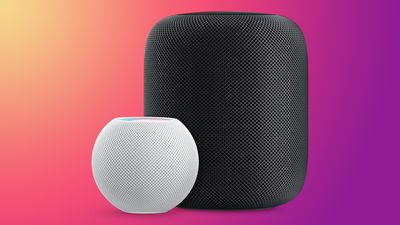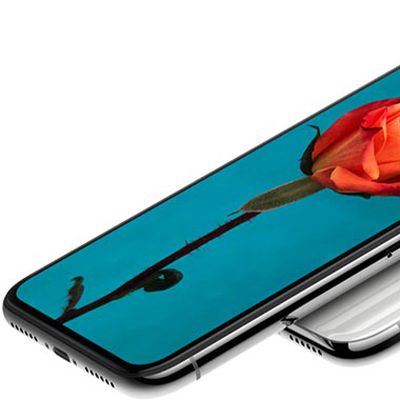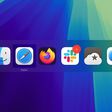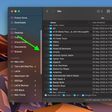HomePod and HomePod mini to Gain Support For Apple Music Lossless Audio in Future Software Update
The HomePod and HomePod mini will gain support for playing back Apple Music Lossless audio in a future software update, according to a newly published Apple Support document.

At launch, the HomePod and HomePod mini will not support Apple Music Lossless but will instead feature support for Dolby Atmos for Apple Music. Dolby Atmos, otherwise known as Spatial Audio, creates an immersive three-dimensional experience that simulates music all around the listener. Apple Music Lossless provides listeners with higher quality audio.
In June, Apple will offer Apple Music subscribers a "Standard" Apple Music Lossless tier with audio up to 48kHz, and "Hi-Res Lossless" with audio between 48kHz and 192kHz. Hi-Res Lossless requires external equipment like a USB digital-to-analog converter.
Despite support for Apple Music Lossless in a future software update for HomePod and HomePod mini, the AirPods and AirPods Pro will not be gaining support. In the support document, Apple explains that current Bluetooth doesn't support the higher quality format that Apple Music Lossless provides. AirPods Max will also not support Lossless wirelessly, but Apple says that when used with a cable, the $550 over-ear headphones will play back Lossless audio, although not completely:
The Lightning to 3.5 mm Audio Cable was designed to allow AirPods Max to connect to analog sources for listening to movies and music. AirPods Max can be connected to devices playing Lossless and Hi-Res Lossless recordings with exceptional audio quality. However, given the analog to digital conversion in the cable, the playback will not be completely lossless.
Apple Music Lossless and Dolby Atmos will be available in June with more than 20 million tracks supporting Lossless audio and thousands of tracks supporting Dolby Atmos.
Popular Stories
YouTube channel Front Page Tech is back today with another video that provides a closer look at iOS 19's alleged design changes.
The video contains re-created renders of iOS 19, which are allegedly based on real footage of the software update, provided by sources within Apple. Overall, iOS 19 is expected to have a more glass-like, visionOS-inspired design, with added translucency for user...
Apple's upcoming iPhone 17 Pro models will feature a redesigned rear camera panel that spans the width of the device, but it will be the same color as the iPhone itself, rather than being part of a two-tone design.
That's according to Bloomberg's Mark Gurman. Writing in his latest Power On newsletter, the reporter says the iPhone 17 Pro won't have a two-toned back, as some renders have...
A new report from The Information today reveals much of the internal turmoil behind Apple Intelligence's revamped version of Siri.
Apple apparently weighed up multiple options for the backend of Apple Intelligence. One initial idea was to build both small and large language models, dubbed "Mini Mouse" and "Mighty Mouse," to run locally on iPhones and in the cloud, respectively. Siri's...
Apple is preparing a "major shake-up" for the iPhone's 20th anniversary in 2027, according to Bloomberg's Mark Gurman.
iPhone X released in 2017 for 10th anniversary
Writing in his latest Power On newsletter, Gurman says that Apple plans to launch a foldable iPhone alongside a "bold" new iPhone Pro model that makes more extensive use of glass.
Could this mean Apple plans to realize former...
U.S. President Donald Trump "absolutely" believes that Apple could manufacture its iPhones and other devices in the United States, Press Secretary Karoline Leavitt said today during a media briefing.
Leavitt was asked whether Trump thought that iPhone manufacturing is the kind of technology that could move to the U.S. "Absolutely, he believes we have the labor, we have the workforce, we have ...
Later this year, Apple will introduce the iPhone 17 series, which includes the iPhone 17 Pro and the iPhone 17 Pro Max, two new high-end flagship devices that will be sold alongside the regular iPhone 17 and an all-new ultra-thin iPhone 17 Air.
If you have been holding out for the iPhone 17 Pro or its bigger sibling, here are five of the biggest changes, informed by the latest reports and...
If you have an older Apple device that you've been considering upgrading, you're probably wondering how the newly announced tariffs might impact prices going forward, and whether it's worth buying now before there's a price hike.
Given analyst and economist responses to the tariffs, market panic, and Trump's stance on the current financial chaos, the answer is that making a purchase...
Apple employees are testing iOS 18.4.1 for iPhones, according to the MacRumors visitor logs, which have been a reliable indicator of upcoming iOS versions. The software update will likely be released in a week or two, if not sooner.
As the version number implies, iOS 18.4.1 will obviously be a minor update that addresses software bugs and/or security vulnerabilities.
There are no...
Apple in October 2024 overhauled its 14-inch and 16-inch MacBook Pro models, adding M4, M4 Pro, and M4 Max chips, Thunderbolt 5 ports on higher-end models, display changes, and more. That's quite a lot of updates in one go, but if you think this means a further major refresh for the MacBook Pro is now several years away, think again.
Bloomberg's Mark Gurman has said he expects only a small...






















